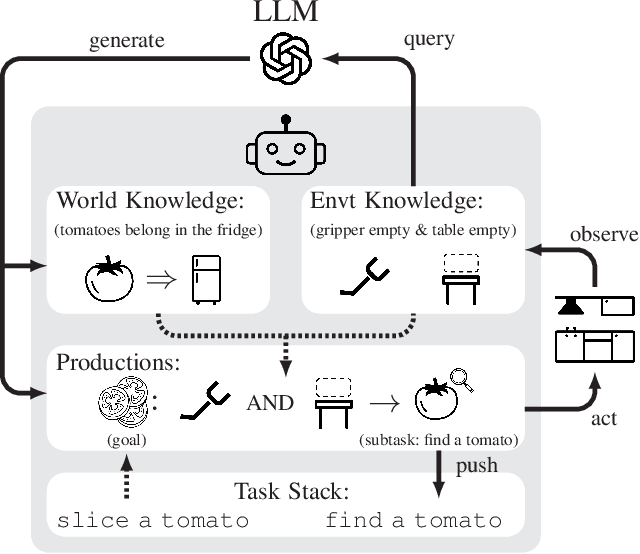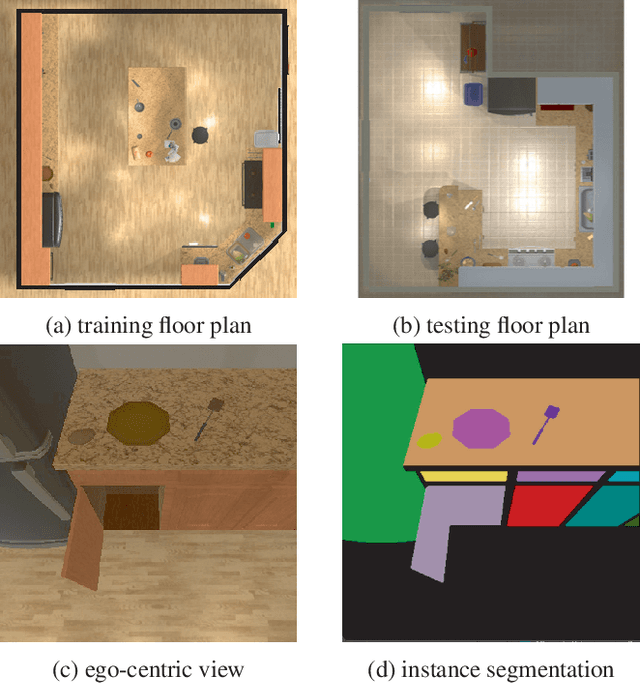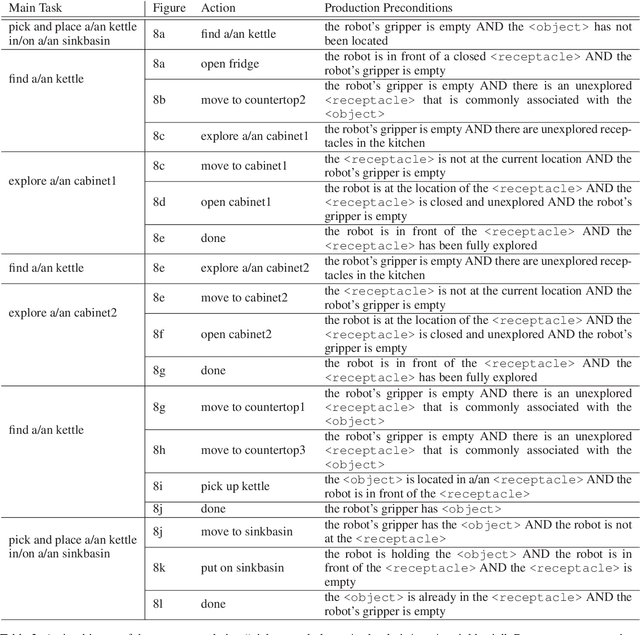Bootstrapping Cognitive Agents with a Large Language Model
Paper and Code
Feb 25, 2024



Large language models contain noisy general knowledge of the world, yet are hard to train or fine-tune. On the other hand cognitive architectures have excellent interpretability and are flexible to update but require a lot of manual work to instantiate. In this work, we combine the best of both worlds: bootstrapping a cognitive-based model with the noisy knowledge encoded in large language models. Through an embodied agent doing kitchen tasks, we show that our proposed framework yields better efficiency compared to an agent based entirely on large language models. Our experiments indicate that large language models are a good source of information for cognitive architectures, and the cognitive architecture in turn can verify and update the knowledge of large language models to a specific domain.
 Add to Chrome
Add to Chrome Add to Firefox
Add to Firefox Add to Edge
Add to Edge